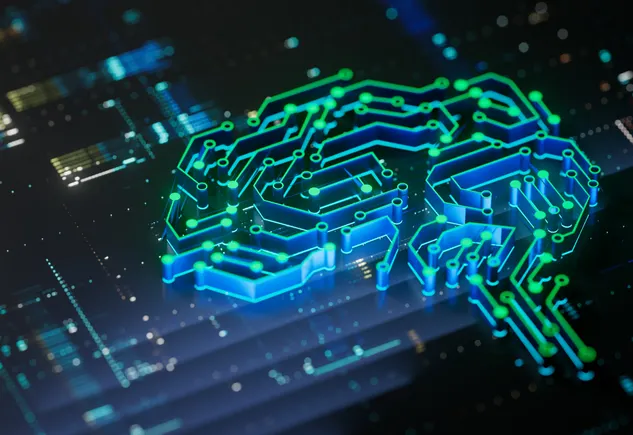The integration of artificial intelligence in educational contexts has been a contentious topic, fraught with both optimism and skepticism. A recent survey, supported by the National Science Foundation, sheds light on how teenagers are interacting with AI tools, revealing a divergence from the anticipated classroom-centric usage.
AI Usage Among Teens
Contrary to the fears of educators and policymakers, the survey indicates that teenagers are predominantly engaging with AI technologies at home. The primary uses cited include entertainment and homework assistance, rather than direct schoolwork applications. This finding challenges the prevailing narrative that AI's role in education is primarily as an academic tool, suggesting instead a broader, more personal engagement with the technology.
Implications for Educational Policy
The data highlights a critical oversight in current educational policy discussions: the assumption that AI's role is confined to the classroom. This assumption neglects the multifaceted ways in which students are already incorporating AI into their daily lives. The survey underscores the necessity for educational frameworks that not only address the potential academic applications of AI but also its broader societal impacts.
"The study highlights the importance of communication and critical thinking in integrating these technologies, with the potential to reach diverse socio-economic backgrounds and personalize learning," the survey report states.
Socio-Economic Considerations
One of the most promising aspects of AI, as identified by the survey, is its potential to bridge educational gaps across diverse socio-economic backgrounds. Personalized learning facilitated by AI could democratize access to quality educational resources, offering tailored educational experiences to students regardless of their economic standing. This potential, however, hinges on the development of inclusive and equitable AI systems that are accessible to all students.
Conclusion
As AI continues to permeate various aspects of life, its role in education cannot be narrowly defined. The insights from this survey call for a reevaluation of how educational policies are crafted, emphasizing the need for a holistic approach that considers AI's impact both inside and outside the classroom. The challenge lies in harnessing AI's potential to enhance learning experiences while safeguarding against the risks of inequality and academic integrity breaches.
Originally published at https://www.k12dive.com/news/teens-embracing-ai-largely-not-for-cheating-survey/744797/
ResearchWize Editorial Insight
The article "Teens and AI: Beyond the Classroom" is crucial for students and researchers as it challenges the conventional wisdom about AI's role in education. It reveals that teenagers are engaging with AI more at home than in school, using it for entertainment and homework help. This insight disrupts the narrative that AI is primarily an academic tool, suggesting a broader, more personal engagement with technology.
For researchers, this highlights a gap in current educational policy, which often assumes AI's role is confined to classrooms. The findings suggest a need for policies that consider AI's broader societal impacts, not just its academic applications. This calls for a reevaluation of how educational frameworks are developed, emphasizing a holistic approach.
The article also touches on AI's potential to bridge educational gaps across socio-economic backgrounds through personalized learning. However, this potential depends on creating inclusive and equitable AI systems. Researchers must explore how these technologies can democratize access to education without exacerbating inequalities.
The big question is: How can educational policies adapt to the multifaceted ways students use AI, ensuring it enhances learning while mitigating risks like inequality and academic integrity breaches? This article is a clarion call for a broader, more inclusive conversation about AI in education.
Looking Ahead: The Future of AI Education
1. Curriculum Revolution: It's time for a seismic shift in educational curricula. Are we ready to integrate AI literacy into every aspect of learning, from elementary to higher education? If we fail to adapt, we risk leaving students unprepared for a future dominated by AI technologies. The question is, will educators and policymakers rise to the challenge or remain mired in outdated paradigms?
2. Beyond the Classroom Walls: AI education must extend beyond traditional classroom settings. How do we harness the informal learning happening at home and in everyday life? Schools should create partnerships with tech companies to provide students with real-world AI experiences. This means rethinking educational spaces and embracing flexible, hybrid learning environments.
3. Regulation and Ethics: As AI tools become ubiquitous, who will ensure they are used ethically and responsibly? We need robust policies that address privacy, data security, and bias in AI systems. What happens if regulators fall behind the rapid pace of technological advancement? Without proactive measures, we risk a landscape rife with inequality and exploitation.
4. Teacher Training Overhaul: Educators themselves must be equipped to navigate this brave new world. Are teacher training programs evolving quickly enough to include AI competencies? Professional development must focus on equipping teachers with the skills to integrate AI into their teaching practices effectively and ethically.
5. Equitable Access: The promise of AI democratizing education is compelling, but what about the digital divide? How can we ensure all students, regardless of socio-economic status, have access to AI tools and resources? This requires intentional investment in infrastructure and targeted policies to prevent further entrenchment of educational inequalities.
6. Continuous Feedback Loop: Finally, we need a mechanism for constant evaluation and iteration of AI educational strategies. Are we prepared to listen to students, educators, and tech experts to refine our approaches continually? A feedback loop is essential to ensure that AI in education evolves in ways that truly benefit all learners.
Originally reported by https://www.k12dive.com/news/teens-embracing-ai-largely-not-for-cheating-survey/744797/.
Related Articles
📌 Take the Next Step with ResearchWize
Want to supercharge your studying with AI? Install the ResearchWize browser extension today and unlock powerful tools for summaries, citations, and research organization.
Not sure yet? Learn more about how ResearchWize helps students succeed.

